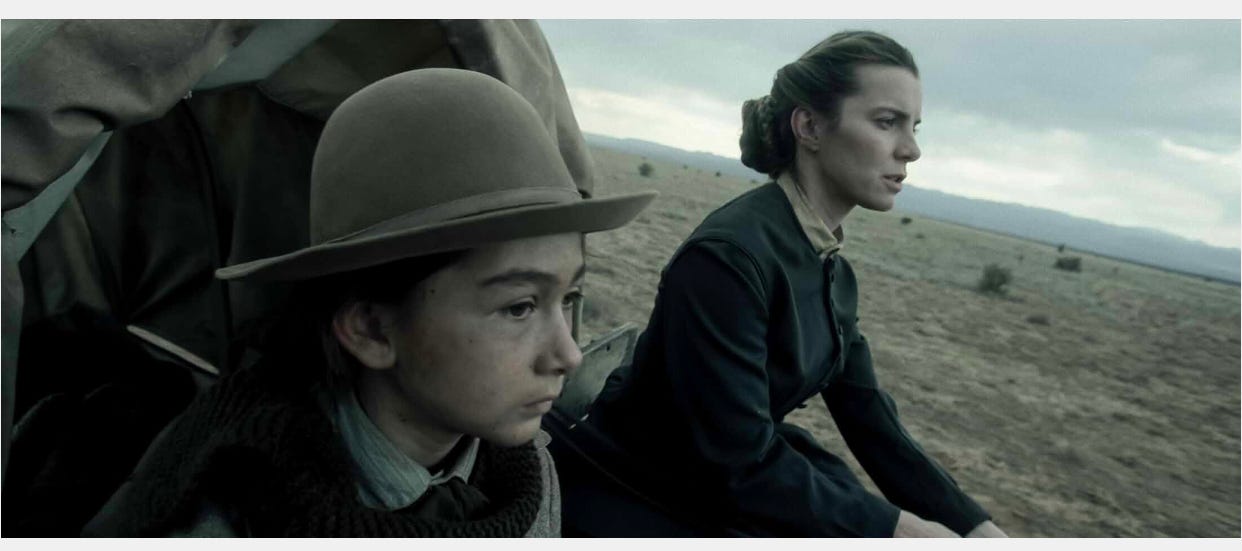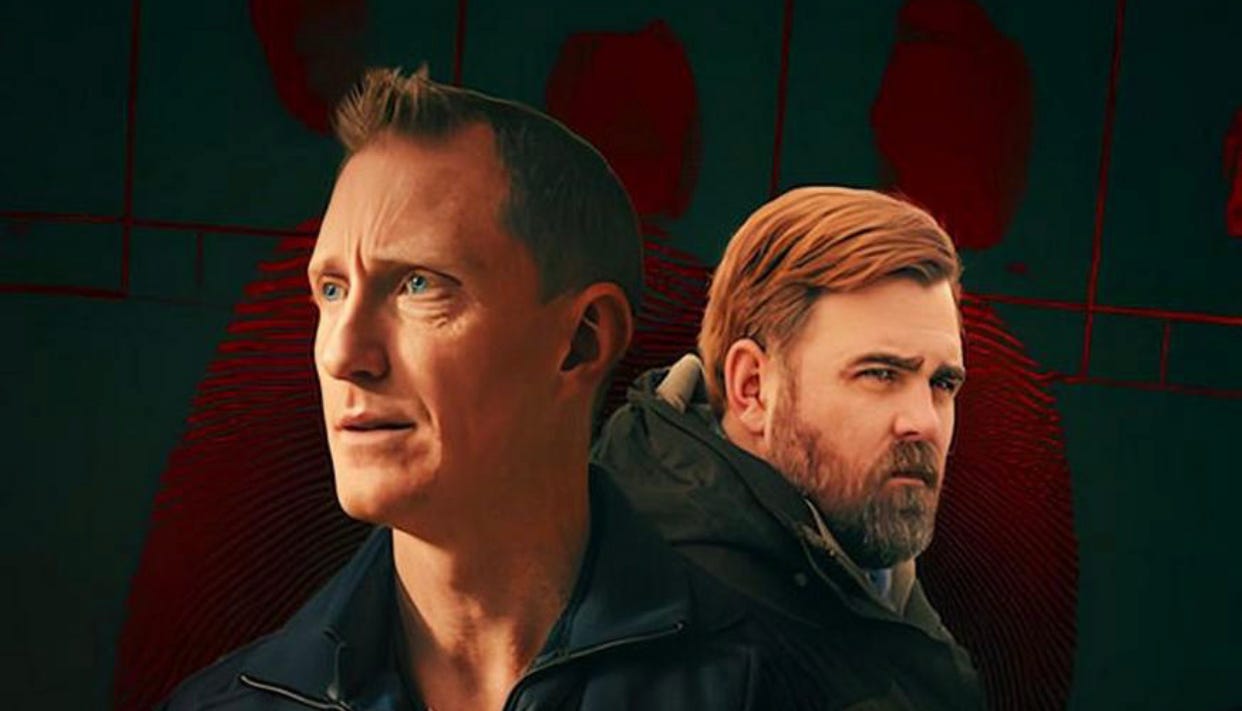Directed by Peter Berg, American Primeval is a violent new western series that takes place in Utah in 1857.
How the Beehive State was won? American Primeval tries to put a new spin on a familiar story, and mostly succeeds.
Created by Mark L. Smith (The Revenant) and expertly directed by Peter Berg (Deepwater Horizon, Painkiller), this series features a stacked cast, spearheaded by Taylor Kitsch (Painkiller) and Betty Gilpin (The Hunt).
The latter plays a pioneer woman, Sara, who, together with her young son Devin (Preston Mota) tries to travel to her husband, who is looking for gold. Along the way she gets help from frontiersman Isaac, played by the former, who was raised by the Shoshone tribe.
Then there is Jacob (Dane DeHaan), who is a Mormon, traveling with his wife Abish (Sarah Lightfoot-Leon); there is Winter Bird (Irene Bedard), who is the leader of the Shoshone Tribe, her son Red Feather (David Hinkley), who is a warrior, and Two Moons (Shawnee Pourier), who connects with Sara, Devin and Isaac. Together they form the emotional core of the story.
There are plenty of other story lines as well, though, and they all have something to do with these four factions: the US Army, the Church of the Latter-day Saints/Mormons, the Indigenous People and the Pioneers. An explosive mix, to say the least.
The series cleverly mixes real life people (like Mormon leader Brigham Young) and events - like the infamous Mountains Meadow Massacre in which 150 pioneers were killed - with fictional characters and stories.
Life wasn’t worth a lot in those olden times, which implies that over the course of six episodes nobody is really safe.
American Primeval looks authentic, which also means that at times it looks really dirty, but at least the money is on the screen.
And I do believe that Berg and Smith feel they have something important to say: that the United States of America is and has always been at its heart a very violent country.
And even though the US has come to present itself as a guiding light for democracy and freedom - a great pr stunt, it must be said - it was born in darkness, so it shouldn’t come as a surprise that in the current moment it has returned to that same darkness.
Maybe I’m reading too much into this, maybe American Primeval just wants to spin a good yarn. If you’re sad that The Revenant never got a sequel or that Kevin Costner’s Horizon Pt. 2 isn’t in theaters yet, this show is for you.
If American Primeval becomes a great success there is definitely room for a follow-up series, but with a mostly new cast, I guess.
The Breakthrough (or: Genombrottet) is a four-part Swedish crime series about the first time that a murder case was solved in Europe through the work of a genealogist.
In 2024 a horrible double murder took place in the Swedish city of Linköping. First a young boy was killed, then a middle aged woman who happened to be a witness. An incident that shocked the community they were both part of.
To make matters worse, even though the crime inspired the second biggest police investigation in Swedish history - after the murder of Prime Minister Olaf Palme - the lead detective, John, (played by Peter Eggers) wasn’t able to crack the case. So it ran the risk of turning into a cold case.
Over the course of sixteen years, however, everything changed and The Breakthrough is the police procedural that tells us how that came about. The most crucial event being the introduction of genealogist Per (Mattias Nordkvist).
But even then it wasn’t plain sailing as John and Per had very different working methods. And also John’s private life was slowly falling apart, while working on, what he would call, ‘the most tragic case of my life.’
Still, even though the ending is never in doubt, you do want to find out - almost as desperately as all those involved - the who and the why.
Genombrottet is based on the non-fiction book by Anna Bodin and Peter Sjölund. It was adapted by Oskar Söderlund, who created the Snabba Cash series and also served as head writer of the Rebecka Martinsson crime series.
Lisa Siwe (Red Rose) directed all four episodes, without a lot of stylistic frills, but with just the right amount of emphasis both on the personal drama and on the more procedural aspects of the murder case.
Like the recent La Palma this series contains only four episodes, with a running time of just over 2 1/2 hours. And, also like La Palma, it’s definitely worth the binge.






